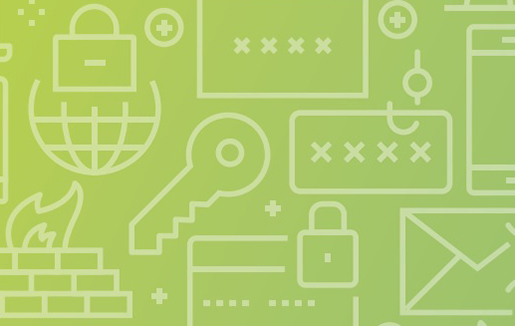
For many channel partners leading their companies and customers through major crises like the current COVID-19 pandemic, there are plenty of opportunities to observe, adjust, and learn. Everyone’s trying to figure out how best to respond to the current economic environment and what it means for businesses, customers, and employees
In two previous blogs, we examined how solution providers and MSPs can learn to better manage employees, as well as their customers, through guidance from some industry leaders in CompTIA’s communities and Industry Advisory Councils. In this article, channel executives will detail some lessons they’ve learned so far that have helped them survive the current chaos.
Ask ‘What If?’ Not ‘What Now?’
If they’re lucky, businesses won’t be severely impacted by global crises or emergency situations. But that doesn’t mean they shouldn’t be prepared for them. Companies that are adequately prepared for the worst may stand the best chance of surviving through a crisis, according to Juan Fernandez, vice president of managed IT services at ImageNet Consulting and member of CompTIA’s Channel Advisory Board.
“The most important thing they need to understand is ‘What if?’ may never happen, but when it does, with proper planning they will not have to ask, What now?” Fernandez said.
Too often, companies have not implemented comprehensive business continuity plans. That’s a conversation that channel partners should be holding with their customers—ensuring that proper backup, security and other measures are followed, Fernandez said.
“Backup has become the safety net for companies in the modern era. Without backup, the company is turning a blind eye to their business future. With the current landscape of malware, breaches and data loss, every business should consider their plans and implement one if they don’t have one,” he said.
Be There for Customers, Employees
When times are tough, people will look to leaders for inspiration, dedication and perseverance. Being the rock that customers and employees can hold to in order to weather the storm will build more loyalty and trust with you and your organization and lead to long-term value and benefits, according to Angus Robertson, CMO at Axcient and co-chair of CompTIA’s Business Applications Advisory Council.
“It is very important to be there for customers and employees in a time of need. Being there to take away some of the load or stress creates and validates the loyalty of the partnership. This is level of trust is never forgotten and is essential in building a long-term relationship. Now is the time to more than ever to be a genuine, trusted advisor to partners and their customers. We all go through challenges, and by providing support your integrity and genuineness is noticed by partners and appreciated.”
Amy Babinchak, president of Harbor Computer Services and a member of the executive council on CompTIA's Managed Services Community, likens the current economic environment to the 2008 recession. Her company didn’t lose a single customer at that time, in part because of how it worked with customers, she said.
“They see us as part of their business. We’re not just a vendor they contact with. But you have to work at that during good times too. You can’t suddenly change your stripes. If you were a relationship-oriented firm to start with, you have an advantage over less personal firms.”
It’s Time to Listen, Not Sell
In all likelihood, your customers are going through the same emotions and same challenges as your company. They’re looking for help, there are probably some things they can’t do right now, and they’re all looking for the light at the end of the tunnel. What they don’t want right now is a sales pitch—no more than you do. That means talking to your customers as family, friends—and not so much as a customer or prospect, according to Mark Sokol, vice president of marketing at Liongard and a member of the Managed Services Community's executive council.
“The one word that comes to mind is empathetic. As a company, you probably should be tempering your expectations for growth during this challenging time,” Sokol said. “Listen to customers. Try to work with them. We’re not pushing to sell, but to help them. You can let them know that you have some resources that as they’re putting anything together that might help, so they have that visibility. But the key is to not be pushy salespeople—which we all can be sometimes—but to listen.”
Find the Value in Peer-to-Peer Partnerships
One of the toughest things any of us can do during a time of crisis is admit we need help. But chances are, one way or another, we do. It’s important to have a network of colleagues that you can work with during times of need—a network of peers that can rely on you, and that you can rely on. No company has unlimited reach, budget or resources. But there’s strength in numbers and working together, you may find that you can accomplish a lot more than you could on your own.
“No one is sitting back with all the answers right now,” Robertson said. “Only through collaboration and cooperation with our peers in the community will we come out of this stronger than we were before.”
In short, everyone has a problem as a result of the COVID-19 crisis, Robertson said, noting that Daymond John, CEO of FUBU and a Shark Tank regular, said recently on LinkedIn, “Everyone has a problem right now, so you won’t feel embarrassed to call somebody with a billion dollar company and say how can we work together. You may have solution for me, and you know what, I might have a solution for you.”
Step up, Pitch in Around Your Community
Finally, don’t forget that all our businesses, customers and employees belong to something larger—a region, a state, a town, a community. Those need help too, and not just our technology expertise. Giving back within our own community fosters good will, great relationships, and instills a sense of pride within your organization.
“I want you to take a second and think about all of our systems as a society. They’re overwhelmed! From state unemployment systems, to the Small Business Administration, and especially the healthcare system, all of our vital economic and community systems are just underwater at the moment,” Robertson said. “If your business is in a position to give back to your community, this is the time to do so. Not just because you’ll be viewed as a hero and likely receive positive media attention, but many of the organizations that are usually looked to as the ones to help during a time of crisis are completely swamped by this event and need all the help they can get.”
For more information and resources to help customers through the coronavirus pandemic, visit CompTIA’s COVID-19 Forum.

 Add CompTIA to your favorite RSS reader
Add CompTIA to your favorite RSS reader

